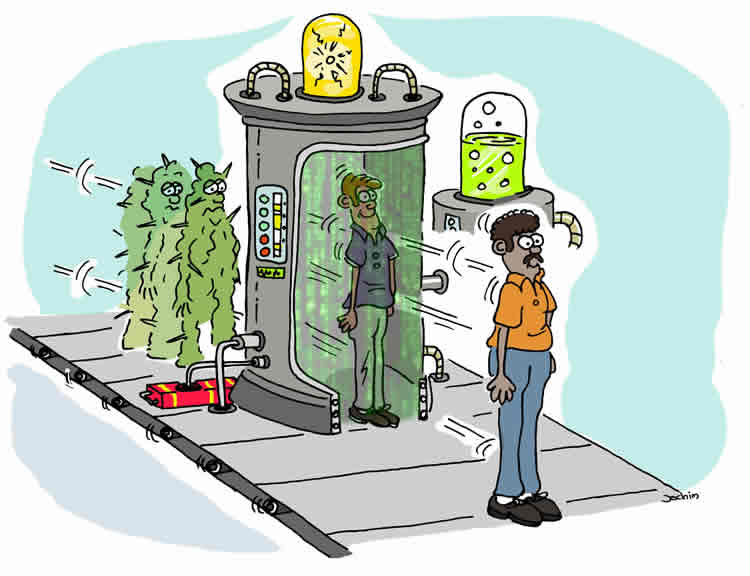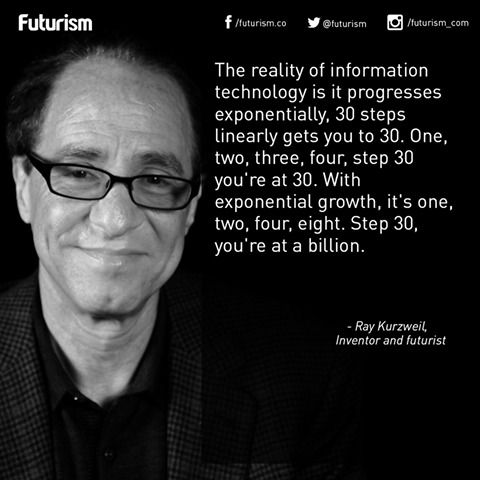LISTENING, the award-winning debut feature from visionary director Khalil Sullins, is a psychological thriller about penniless grad students who invent mind-reading technology that destroys their lives. David, Ryan, and Jordan hope the telepathy invention will solve all their problems, but the bleeding-edge technology opens a Pandora’s box of new dangers, as the team discovers that when they open their minds, there is nowhere to hide their thoughts. Secrets and betrayals surface, and the technology is stolen by a covert government agency with a hidden agenda. With no one left to trust, David is forced against his friends in a life-or-death battle over not only the privacy of the human mind, but the future of free will itself.
Page 12079
Aug 26, 2015
The 2015 Fuller Challenge Semi-Finalists | The Buckminster Fuller Institute
Posted by Odette Bohr Dienel in categories: climatology, education, science, sustainability, water
“Now in its 8th annual cycle with the strongest applicant pool yet, including the most diverse pool of program entrants to date creating change in 136 countries, The Fuller Challenge remains the only award specifically working to identify and catalyze individuals and teams employing a whole systems approach to problem solving.”
Aug 26, 2015
Can We Reprogram Cancer Cells Back To Normal?
Posted by Roy in categories: biotech/medical, computing, health

Most cancer-busting strategies focus on removing cancerous cells. While this approach has proved extremely effective on many patients, most treatments have unpleasant side effects and there are many strains which prove extremely challenging to remove. An alternative model to this is to alter instead of remove — fixing cancerous behaviour by ‘reprogramming’ cells that go rogue; essentially swiss finishing school for cellular miscreants. A study published in Nature Cell Biology now provides hope that this tactic could in fact work in many cancers.
Researchers from Mayo Clinic’s Florida campus have found that adhesion proteins, which act like a glue sticking cells together, actually interact with a cell’s ‘microprocessor’. This processor creates molecules called miRNAs, which regulate multiple genes and essentially activate or de-activate different behavioural programs (like commands in computer programming). When healthy cells bump into a neighbour and begin to glue together, these adhesion proteins normally influence both cells — tuning down growth pathways. In cancer, the lab found this adhesion is perturbed; de-regulating miRNA production and enabling rampant growth. When scientists corrected these miRNA levels, the growth was arrested.
Continue reading “Can We Reprogram Cancer Cells Back To Normal?” »
Aug 26, 2015
This guy is running for president with the goal of using science to cure death and aging
Posted by Zoltan Istvan in categories: biotech/medical, geopolitics, life extension, transhumanism
A new story on transhumanism from Tech Insider which is Business Insider’s new tech site:
This presidential candidate wants you to live forever.
Aug 26, 2015
The Air Force Wants You to Trust Robots–Should You?
Posted by Bryan Gatton in category: robotics/AI
Research and development in human–robot trust is the cutting edge of artificial intelligence, but faith in machines can often be misplaced.
Aug 26, 2015
This startup can grow metal like a tree, and it’s about to hit the big time
Posted by Shailesh Prasad in categories: 3D printing, materials
A little know startup in Seattle could do for metal what 3D printing is doing for other materials like plastic.
Aug 25, 2015
Sci-Tech Universe: Black Holes are Escapable, Hawking Says
Posted by Shailesh Prasad in category: cosmology
Matter that drops into a black hole is gone forever, right? Not so, declares Stephen Hawking.
Aug 25, 2015
Our brains didn’t evolve to deal with understanding exponential growth
Posted by Shailesh Prasad in categories: neuroscience, singularity
Our brains didn’t evolve to deal with understanding exponential growth, it’s freaking terrifying.
Aug 25, 2015
Dune, 50 years on: how a science fiction novel changed the world — By Hari Kunzru | The Guardian
Posted by Odette Bohr Dienel in categories: astronomy, media & arts, philosophy, science, space travel, sustainability, water
“It has sold millions of copies, is perhaps the greatest novel in the science-fiction canon and Star Wars wouldn’t have existed without it. Frank Herbert’s Dune should endure as a politically relevant fantasy from the Age of Aquarius.”
Tags: Science Fiction, Star Wars
Aug 25, 2015
Edge Master Class 2015: Philip Tetlock: A Short Course in Superforecasting
Posted by Amnon H. Eden in category: futurism
Philip E. Tetlock presents findings from the Good Judgment Project:
In 1984, Tetlock began holding “forecasting tournaments” in which selected candidates were asked questions about the course of events. Accuracy rates have exceeded IARPA’s expectations.
To arrive at the edge of the world’s knowledge, seek out the most complex and sophisticated minds, put them in a room together, and have them ask each other the questions they are asking themselves.















